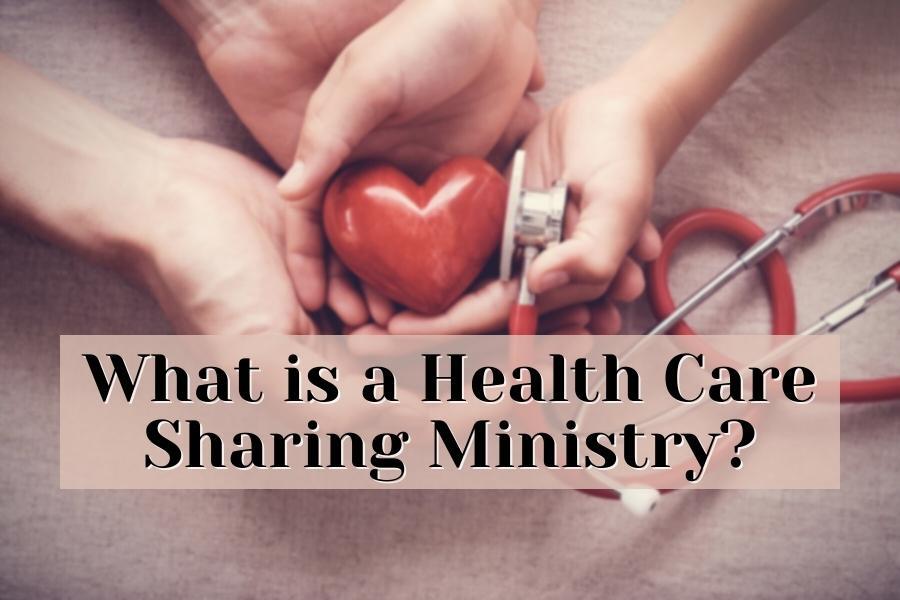Get in touch
408-366-8880
mymail@mailservice.com

Health Care Sharing Ministry: What Is It?
Over the past few decades, several alternatives to traditional group health insurance plans have emerged for employers who care about providing top insurance for employees and saving money for the organization. Business leaders and HR departments in various industries have sought new strategies in healthcare, such as the
Individual Coverage Health Reimbursement Arrangement (ICHRA)
and
self-funded plans.
Your employees might not participate in your plan at all. Whether one of your employees has a spouse with another insurance plan and coverage or receives insurance through a government-based program, not all your employees depend on you to provide healthcare insurance.
There is another alternative to employer-led insurance plans for work: a health care sharing ministry (HCSM). While it is outside the parameters of your business and your employees’ health insurance needs, you might employ some people who participate in such a plan.
So, what is a health care sharing ministry? Let’s take a few moments to learn more about this unique alternative to a traditional health insurance strategy.
HEALTH CARE SHARING MINISTRIES
A health care sharing ministry is an alternative to traditional group health insurance and other types of insurance plans. An HCSM creates an opportunity for people to find others with whom they share basic beliefs and healthcare-related costs, savings, burdens, and benefits.
In an HCSM, members generally share a common belief, which is usually religious in nature. Essentially, when members join these programs, they pay for the healthcare of others in the program and potentially for themselves at some point.
According to HealthInsurance.gov, HCSMs are non-insurance entities that bring together members who “share a common set of ethical or religious beliefs and share medical expenses among members in accordance with those beliefs.”
HCSMs are covered under Title 26 of the U.S. Code § 5000A, indicating it is included in section 501(c)(3), exempting the organization from paying taxes, allowing them to register as non-profits.
Further, HCSMs are not actually counted as insurance plans, nor do they count as minimum essential coverage under the Affordable Care Act (ACA), meaning that members are not subject to any fees and penalties for lack of coverage since the law has provided HCSM members with an exemption to that rule.
HCSMs that have shared healthcare costs since the end of 1999 or earlier qualified for the ACA exemption and were grandfathered in, but there have been additional allowances. The Department of Health and Human Services (HHS) certified an additional 104 health care sharing ministries as of 2018.
While the consideration regarding the penalties is no longer technically an issue, since the individual mandate policy is no longer in effect, it speaks to the federal government’s acknowledgment of HCSMs as viable and valuable alternatives to traditional health insurance plans for individuals and their families.
However, not all states consider HCSMs a good thing, and some have tried to block it by claiming that the organizations were selling unauthorized insurance to innocent parties. In Oklahoma, for example, the State tried to bar MediShare from operating there in 2007 because of its misleading marketing that suggested it was “insurance.” However, once MediShare took a more transparent approach, Oklahoma welcomed the company and allowed it to operate again in 2009.
ARE HCSMS NEW?
Even if the concept of an HCSM is new to you, they’re actually an old idea stemming from Mennonite and Amish communities. Such communities are known for their cohesive and helping nature for one another and the community they live in. So, it might not come as a huge surprise they started the practice more than 100 years ago.
All across the United States, these small, faith-based pockets of people gathered together and pooled their money to care for those less fortunate or anyone who went through a difficult time, as far as finding the necessary resources for any illness or injury.
Toward the end of the 20th century, Christians increasingly adopted this practice, as it spoke to their beliefs and fellowship with other Christians.
WHO SEEKS OUT HCSMS TO PROVIDE INSURANCE?
People with deeply held beliefs—-often religious in nature—-tend to seek communities and community resources that allow them to approach a certain facet of life with their beliefs as the foundation. HCSMs provide that to religious individuals who want medical coverage outside traditional organizations.
The health care sharing community comprises faith-based and like-minded individuals who want to care for one another and their health-related needs. Those who participate understand that HCSMs are not insurance plans and commit themselves to voluntarily sharing in others’ medical costs and burdens.
WHAT ARE SOME WELL-KNOWN HCSMS?
According to Glenn Trevor of The Digital Momentum, HCSMs are “exclusive organizations, offering memberships to individuals who share are a common ethical or religious belief.” A few of the best-known HCSMs include Samaritan Ministries, Medishare, and Christian HealthCare Ministries.
Considered non-profits and, as mentioned earlier, exempt from ACA rules and any tax payments at the federal level, HCSMs are gaining ground in more states across the country now. Thirty states have granted HCSMs an exemption from obtaining an insurance code. For the sake of transparency, however, state lawmakers have decided it is vital to warn residents that HCSM organizations are not insurance companies, nor do they behave as insurance companies.
More people are becoming interested in membership, thanks to the proposal that HCSMs become tax-deductible since it is based on charity and providing for others.
ARE THERE RULES FOR JOINING AN HCSM?
You might think that joining an HCSM is as simple as stating one’s belief. While that is sometimes the case, there is more to it since participation rules vary for different ministries.
First, it’s important to know that there are two basic types of HCSM: closed and open. A closed HCSM is based upon membership with a specific organization or church. In open HCSMs, participation is granted upon one’s personal attestation, including:
- Frequent or regular attendance at a group worship or Bible study
- Statement of religious affiliation and professing a shared set of beliefs
- Observing certain tenets of faith, such as abstinence from alcohol, illegal drugs, and intimate relations outside a faith-observed marriage
WHAT ARE THE BENEFITS OF JOINING AN HCSM FOR INDIVIDUALS?
Often, out in the world away from church or any other place of worship, people feel isolated and would like to feel more connected to their faith and fellow believers. HCSMs offer individuals this opportunity and so much more.
Here are some additional benefits of joining a health care sharing ministry:
- Requests monthly contributions that are far less expensive than traditional health insurance plans and individual medical coverage.
- Focuses on the health and well-being of all those involved.
- Members can negotiate regarding bills.
- Offers plan design options.
- Benefits freelancers, gig workers, and others who might not otherwise have access to affordable, employer-sponsored healthcare options.
- Considered 501(c)(3) charities.
- Helps members of the community, which holds a great deal of meaning for those who choose to participate in such plans.
WHAT ARE THE DOWNSIDES TO JOINING AN HCSM FOR INDIVIDUALS?
There are some cons or downsides to participating in an HCSM that everyone should know before committing to one. These downsides include:
- HCSMs are not insurance companies and are not regulated by a state’s Department of Insurance, meaning that there is no official obligation for an organization to pay claims.
- HCSM coverage varies from one organization to the next.
- There is no enforceable contract, so it is all based on good faith.
- Some HCSMs have their own provider networks and leverage penalties for those who work with other providers.
HCSMS PROVIDE A CRUCIAL SERVICE FOR MILLIONS OF AMERICANS
Health care sharing plans of all kinds are becoming increasingly vital for millions of Americans who might otherwise live on a hope and prayer that they don’t become sick or injured. As many as two million people across the country participate in some type of health care sharing plan, providing peace of mind at all times and access to healthcare when necessary.
These plans offer people a chance to provide charity to those of their same faith, contributing what they can in hopes that someone else might benefit. And at some point, they might need to call on some of their investment to make a claim as well.
For some plans, members pay a monthly share contribution, which the HCSM records and deposits into an escrow account on the member’s behalf. In other plans, members pay other members directly as needed.
As HCSMs establish their organizations, many form strong community relationships with like-minded healthcare providers to save money and ensure top healthcare for their members. Whether the providers are of the same faith or respect the concept of health care sharing, it adds another layer of community building and a personal approach to healthcare for members.
WOULD YOU LIKE TO LEARN MORE ABOUT HCSMS?
While many HCSM programs are designed to serve individuals, there are some cases where businesses can become involved with such plans. For instance, if your organization has a strong foundation in a particular faith, you might work with an HCSM by offering this option to your employees.
In any case, our team at KBI Benefits can help you learn more about HCSMs and their important place in the increasingly complex insurance industry.
To learn more about HCSMs or anything else regarding benefits for your valued employees, contact us today using our online contact form or calling us at 408-366-8880.
Services
Latest Thinking




